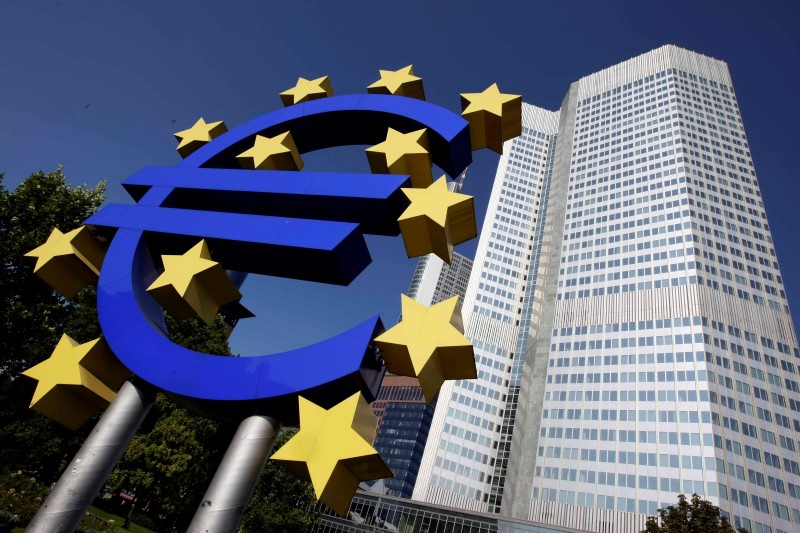By Abhinav Ramnarayan
LONDON (Reuters) - Euro zone government bond yields held near recent lows on Monday on concerns over European and global economic growth and at the start of a hefty week of European sovereign debt redemptions.
In a market preoccupied with the implications of a potential trade war between the United States and China on global growth, safe haven European government bonds such as German Bunds are proving a popular investment.
Although U.S. President Trump expressed some optimism this weekend, the world's two largest economies have threatened each other with tens of billions worth of tariffs in recent days and Chinese officials have said this is not the time for negotiations.
As a result, Germany's 10-year government bond yield is continuing to hover around the 0.50 percent level, far below the year's highs of 0.81 percent. (DE10YT=RR)
"It looks like we've reached a steady state for the European market, more particularly for the Bunds," said Commerzbank (DE:CBKG) strategist Rainer Guntermann.
Euro zone periphery govt bond yields http://tmsnrt.rs/2ii2Bqr
German exports plunged unexpectedly in February, posting their biggest monthly drop in more than two years and narrowing the country's trade surplus, data showed on Monday, another sign that growth in Europe's biggest economy may have peaked.
"Investors are just not willing to reduce duration given the concerns about the slowdown in the global economy," said Commerzbank's Guntermann.
Sentix's index for the euro zone showed on Monday that investor morale deteriorated for the third month in April on concerns over a growth slowdown and trade war.
Most euro zone bond yields -- which move inversely to price -- are now close to multi-month lows and on Monday they were holding steady at the start of one of the biggest weeks for redemptions in Europe.
Commerzbank estimates that around 60 billion euros of European government bonds are due to mature this week, and given that there is only around 13 billion euros of supply to counter this, yields are unlikely to rise much, analysts said.
That said, investors will keep a close eye on what European policymakers will have to say about global growth amid the trade tensions: ECB vice-president Vitor Constancio and chief economist Peter Praet are due to speak later on Monday.
Already last week, the ECB's Benoit Coeure said the mere fear of a trade war is already hurting the economy.
Also, the IMF is due to release its world economic outlook report in the afternoon. DZ Bank analyst Sebastian Fellechner said the market will be looking to the Fund for the some guidance on the direction of the global economy.
"It's interesting to see if the IMF still expects a continuation of global economic growth or if they are seeing some implications of the trade war," he said.
Later this week, minutes from ECB and Fed meetings, as well as inflation data for the U.S. will further inform the government debt market.
On Friday, Fed Reserve chair Jerome Powell said rate hikes will likely continue as planned.
The yield on 10-year U.S. Treasury yields was 2 bps higher in European trade on Monday at around 2.80 percent. (US10YT=RR)
